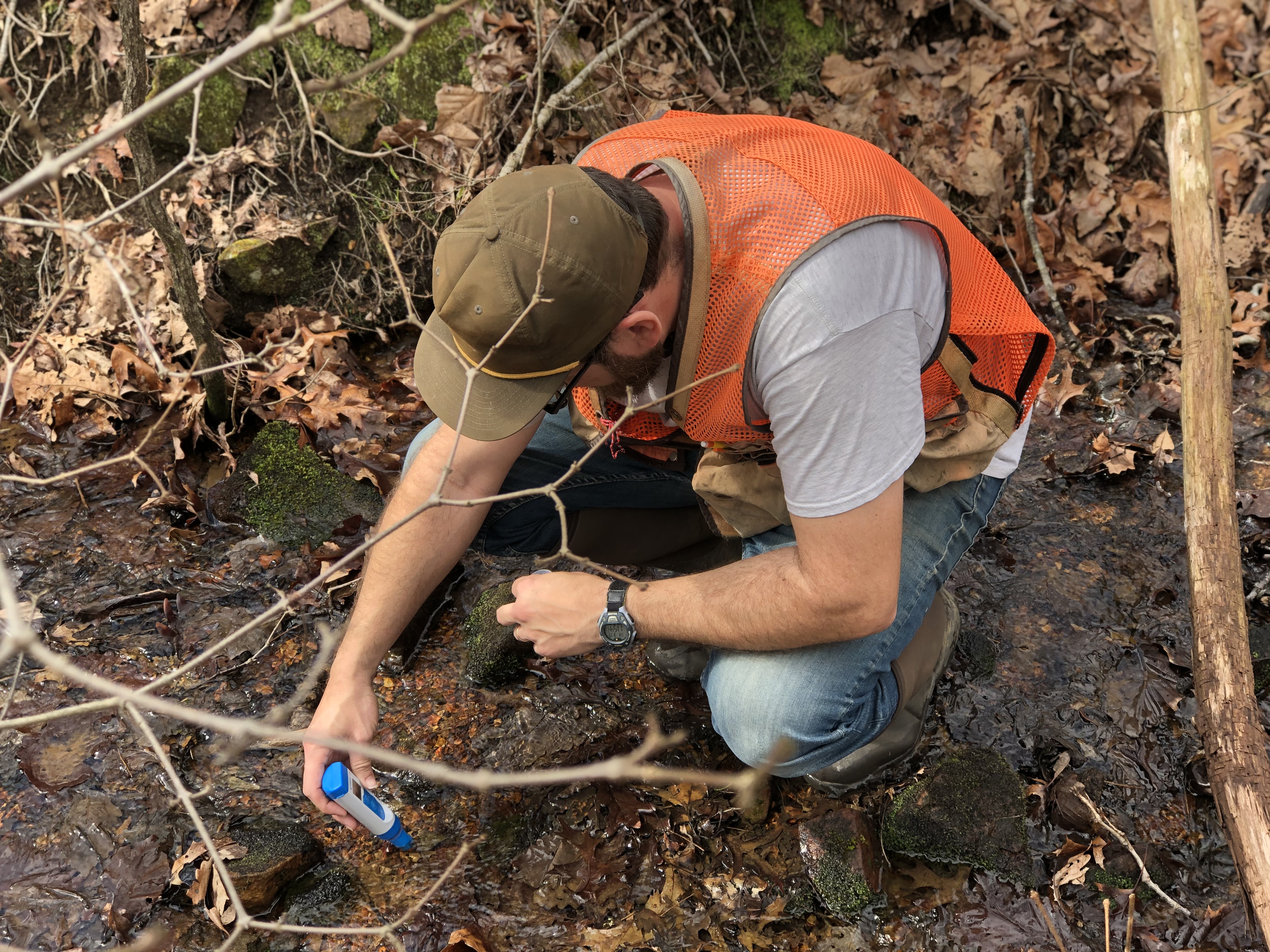Time: 7:00pm
Decades before it was a destination for outdoor enthusiasts from around the country, Signal Mountain attracted an entirely different crowd - coal miners. Their legacy riddles the mountain with a patchwork of old excavation sites, some long since buried, but others still resembling the original open pits. This past year, the WaterWays team has collaborated with local watershed experts to devise a three-year, three-step plan to identify, map, and remediate the abandoned mines. Our incredible interns, Rosy and Grey, have spent most of 2020 mapping and testing hundreds of sites for factors like temperature, pH, and E. coli levels.
They've trekked into the middle of the woods and onto front porches (sometimes the mines are in someone's backyard!), successfully laying the groundwork for our remediation efforts. These mines pose a threat to the Middle Creek watershed, since water that flows through them emerges with a lower pH and a much higher chance to release toxic metals like lead, copper, zinc, and aluminum. The change in pH can also impact the growth of native plants and animals, in turn changing the makeup of the entire ecosystem. It's not just Signal Mountain's past that's causing problems in the Middle Creek watershed; Bee Branch, Stanley Branch, Short Creek, and Freudenberg Creek have all made the Tennessee Department of Environment and Conservation (TDEC) 303(d) list of impaired or polluted streams. While Stanley Branch and Freudenberg Creek suffer from the legacy of abandoned mines, Short Creek and Bee Branch are contaminated with sewage leaching from the septic systems that service much of the development on the mountain. Faulty septic systems leach bacteria into the water, which travels easily across the rocky landscape. These feeder creeks ultimately flow into Middle Creek, which then empties into the Tennessee River.
Pollution from heavy metals and faulty septic not only harms the aquatic ecosystem, but also poses a threat to our own well-being! Much of our drinking water comes from the Tennessee River, and we all pay the price as it grows more contaminated - literally. Middle Creek and the Tennessee River both also offer exceptional recreational opportunities, from rock hopping to swimming to paddling to fishing. The better we take care of our creeks and streams, the better we care for each other!
Outreach and education efforts began before the testing even started, with area Stream Teams learning about the effects of polluted stormwater and implementing best practices to manage it on their own campuses. We've established partnerships with landowners who have abandoned mines on their property, so that those areas may be surveyed and passive remediation systems (wetlands, etc.) installed. Septic system rehabilitation is also a priority, with twelve major repairs expected to be completed by the end of year two. Homeowners can play a role in stemming the impact of residential development by actively imposing stormwater management practices in their own backyards. Tips, tricks, and more information about our creek-friendly yards award program can be found on our website under the My Tennessee: Clean Water Starts Here tab. Those who use septic should regularly ensure that the system is working properly with no leaks, keeping E. coli and other harmful bacteria from entering the water. And if you or someone you know has a mysterious hole on their property that resembles an abandoned mine... give us a call! We'd love to check it out. We look forward to getting all of Signal's streams clean and healthy again soon!
Zoom details:
Join Zoom Meeting
Meeting ID: 813 2145 8819
One tap mobile
+13126266799,,81321458819# US (Chicago)
+19292056099,,81321458819# US (New York)
